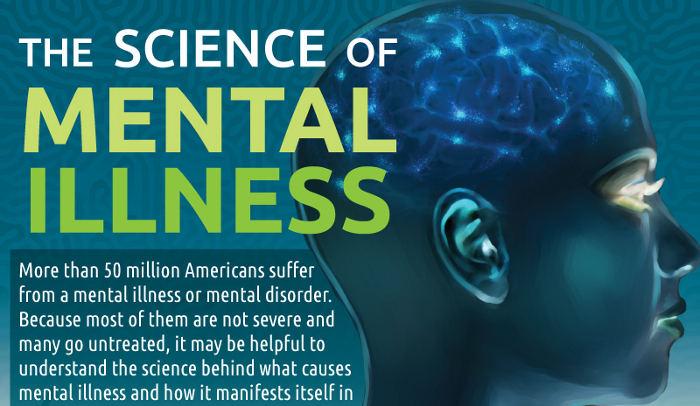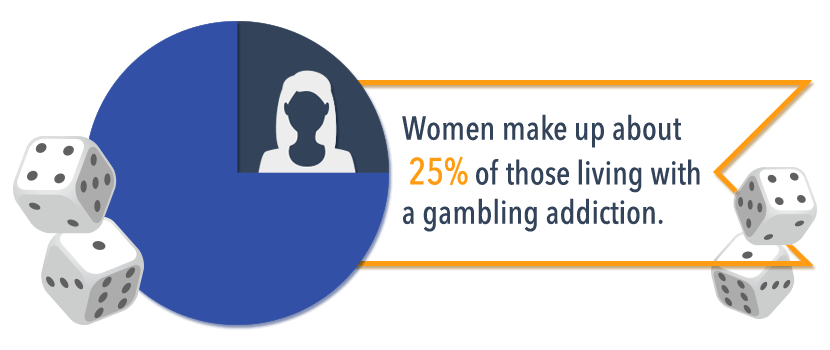Types Of Gambling Disorders
This type of compulsive behavior is often called “problem gambling.” A gambling addiction is a progressive addiction that can have many negative psychological, physical, and social repercussions. Gambling can be a fun once-in-a-while activity or, for the lucky few, a way to win that illusive jackpot. Unfortunately, gamblers can become obsessive and compulsive about playing the ponies or pulling the one-armed bandit. They may find themselves in the throes of an addiction that could ruin them financially, socially, psychologically or even physically. Compulsive Gambling: This type of gambler is the most extreme form of the addiction. Compulsive, or pathological, gamblers are consistently unable to control their gambling behavior, no matter how high the risk or how severe the consequences.
Last updated: 08/5/2019
Author: Addictions.com Medical Review
Reading Time: 3minutes
Even without the physical triggers so commonly associated with drug addiction, gambling disorders can wreak just as much havoc in a person’s life. While drug addiction works as a substance-based disorder, gambling addictions have more to do with a lack of impulse control.
Gambling addiction often affects people who also struggle with alcohol abuse.
Ultimately, it’s the loss of control that defines addictive behavior regardless of the substance or activity involved. Gambling addiction statistics present this “loss of control” factor in a stark and alarming light.
Gambling addiction statistics show how problem gambling can up-end a person’s life in more ways than one. Not unlike other types of addiction, people most susceptible to gambling also suffer from other disorders of which they may or may not be aware.
Probably the most glaring revelation to be had from gambling addiction statistics lies in the consequences that result when gambling disorders go untreated.
1. Gambling Trends
As with all types of data, certain trends or patterns of behavior start to surface within a given population. Gambling addiction statistics are no different. Some of the more prevalent gambling trends show:
- The likelihood of developing a gambling addiction increases 23-fold for people affected by alcohol use disorders
- Over 80 percent of American adults gamble on a yearly basis
- Three to five gamblers out of every hundred struggles with a gambling problem
- As many as 750,000 young people, ages 14 to 21 have a gambling addiction
2. Gambling & Criminal Activity
As far as gambling and criminal activity goes, gambling addiction statistics reveal a direct correlation between the severity of a gambling addiction and the likelihood of committing crimes. Rates of gambling addiction for criminal offenders far exceed rates found among non-offenders. On average, an estimated 50 percent of those affected by gambling problems commit crimes in order to support their addiction.
3. College Gambling
Gambling addiction statistics show people between the ages 20 and 30 have the highest rates of problem gambling.
- 75 percent of college students report having gambled during the past year
- The risk of developing a gambling addiction more than doubles for young adults in college settings
- An estimated six percent of American college students struggle with gambling problems
4. Gambling & PTSD Trends


People affected by post-traumatic stress disorder or PTSD live with high levels of stress and anxiety on a daily basis. Gambling addiction statistics show high rates of gambling addiction among PTSD sufferers.
- PTSD symptoms affect anywhere from 12.5 to 29 percent of problem gamblers
- 34 percent of those who seek treatment for gambling addiction exhibit symptoms of PTSD
5. Gambling & Mental Illness
As addictions, in general, alter brain chemical functions in destructive ways, people struggling with gambling addiction have a higher likelihood of developing mental disorders. Gambling addiction statistics show a high incidence of certain types of mental illness, some of which include:

- Depression disorders
- Anxiety disorders
- Substance abuse disorders
- Anti-social personality disorder
As with any other type of addiction, a gambling addiction can only get worse when left untreated.
Learn about the six types of gamblers: professional, antisocial, casual, serious social, relief and escape, and compulsive gamblers.
Robert L. Custer, M.D., the first to identify 'pathological gambling' and establish a gambling addiction treatment program, identified 6 types of gamblers:
1. Professional gamblers make their living by gambling and thus consider it a profession. They are skilled in the games they choose to play and are able to control both the amount of money and time spent gambling. Thus, professional gamblers are not addicted to gambling. They patiently wait for the best bet and then try to win as much as they can.
2. In contrast to professional gamblers, antisocial or personality gamblers use gambling as a way to get money by illegal means. They are likely to be involved in fixing horse or dog races, or playing with loaded dice or marked cards. They may attempt to use a compulsive gambling diagnosis as a legal defense.
3. Casual social gamblers gamble for recreation, sociability and entertainment. For them, gambling may be a distraction or a form of relaxation. Gambling does not interfere with family, social or vocational obligations. Examples of such betting are the occasional poker game, Super Bowl bets, a yearly trip to Las Vegas and casual involvement in the lottery.
4. In contrast, serious social gamblers invest more of their time in gambling. Gambling is a major source of relaxation and entertainment, yet these individuals place gambling second in importance to family and vocation. This type of gambler could be compared to a 'golf nut,' whose source of relaxation comes from playing golf. Serious social gamblers still maintain control over their gambling activities.
Types Of Gambling Disorders Criteria
5. Custer's fifth type, relief and escape gamblers, gamble to find relief from feelings of anxiety, depression, anger, boredom or loneliness. They use gambling to escape from crisis or difficulties. Gambling provides an analgesic effect rather than a euphoric response. Relief and escape gamblers are not compulsive gamblers.

6. Compulsive gamblers have lost control over their gambling. For them, gambling is the most important thing in their lives. Compulsive gambling is a progressive addiction that harms every aspect of the gambler's life. As they continue to gamble, their families, friends and employers are negatively affected. In addition, compulsive gamblers may engage in activities such as stealing, lying or embezzling which go against their moral standards. Compulsive gamblers cannot stop gambling, no matter how much they want to or how hard they try.
Learn more about Gambling Addiction Signs.
next: Symptoms of Gambling Addiction
~ all gambling addiction articles
~ all articles on addictions
Types Of Gambling Disorders Symptoms
APA Reference
Gluck, S. (2008, December 19). Types of Gamblers: Compulsive Gamblers and More, HealthyPlace. Retrieved on 2020, December 16 from https://www.healthyplace.com/addictions/gambling-addiction/types-of-gamblers-compulsive-gamblers-and-more